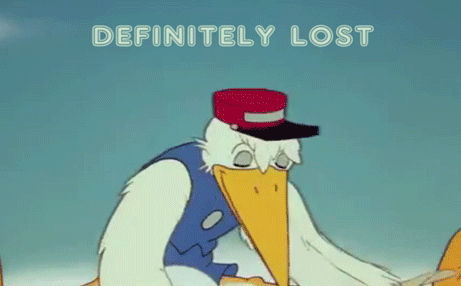Wandering Sammy

Sammy is lost and starts to wander aimlessly. Each minute, he walks one meter forward with probability 2 1 , stays where he is with probability 3 1 , and walks one meter backward with probability 6 1 .
After one hour, what is the expected value for the forward distance (in meters) that Sammy has traveled?
The answer is 20.
This section requires Javascript.
You are seeing this because something didn't load right. We suggest you, (a) try
refreshing the page, (b) enabling javascript if it is disabled on your browser and,
finally, (c)
loading the
non-javascript version of this page
. We're sorry about the hassle.
7 solutions
Why in the description of the event going forward 1/6 is multiplied by -1 ? Thanks
Log in to reply
That's the probability of walking one meter backward.
Half of the time Sammy moves forward, so at the rate of each minute he will move 30m forward. He moves backward one-sixth of the time. So, 1/6 X 60 = 10. So distance travelled = 30 - 10 = 20m (NOTE: We can ignore the probability of staying where he is, as it does not affect the distance. It's in the left out 20 minutes as 1/3 X 60 = 20)
If Sammy spent half his time walking forwards, after 60 minutes he would have spend 60/2 = 30 minutes walking forwards. If he walks 1 metre per minute, in 30 minutes he would have walked 30 metres.
If Sammy spent a sixth of his time walking backwards, after 60 minutes he would have spend 60/6 = 10 minutes walking backwards. If he walks 1 metre per minute, in 10 minutes he would have walked back 10 metres.
If he walked 30 metres forward and 10 metres backwards, he would have walked 30 - 10 = 20 metres forwards in total.
Let E [ X n ] denote the expected distance travelled by Sammy in n minutes.
Then E [ X n + 1 ] = 2 1 ( E [ X n ] + 1 ) + 3 1 E [ X n ] + 6 1 ( E [ X n ] − 1 ) , based off the probabilities of moving 1 meter forward, 0 meters forward and 1 meter backwards (equivalently − 1 meters forward).
This simplifies to E [ X n + 1 ] = E [ X n ] + 3 1 , or E [ X n ] = 3 n + E [ X 0 ] .
Since E [ X 0 ] = 0 , as Sammy can't have moved before the first second, E [ X 6 0 ] = 3 6 0 = 2 0
60 mins ( 1/2 - 1/3 + 1/6) = 20 m
We can ignore the probability of staying where he is, as it does not affect the distance. It's in the left out 20 minutes as 1/3 X 60 = 20
60 1/2+60 1/3+60 1/6 = 60/3 = 20 meters or the míddle value (I think is geometric mean) and multiply 60 1/3 = 20.
Let X i be the forward distance in meters that Sammy travels during the i th minute and note that
E ( X i ) = 2 1 ⋅ ( 1 ) + 3 1 ⋅ ( 0 ) + 6 1 ⋅ ( − 1 ) = 3 1
for all i . Then, the forward distance Sammy has traveled after one hour is simply X 1 + X 2 + … + X 6 0 . By linearity of expectation,
E [ i = 1 ∑ 6 0 X i ] = i = 1 ∑ 6 0 E [ X i ] = 6 0 ⋅ 3 1 = 2 0 .